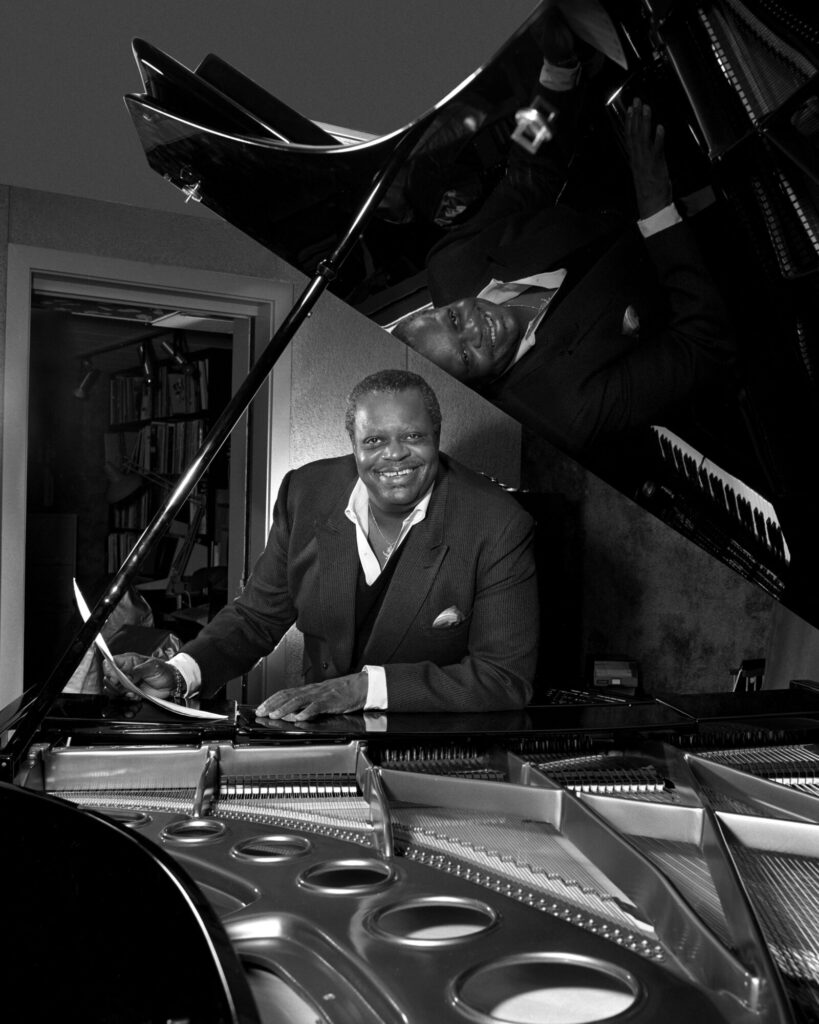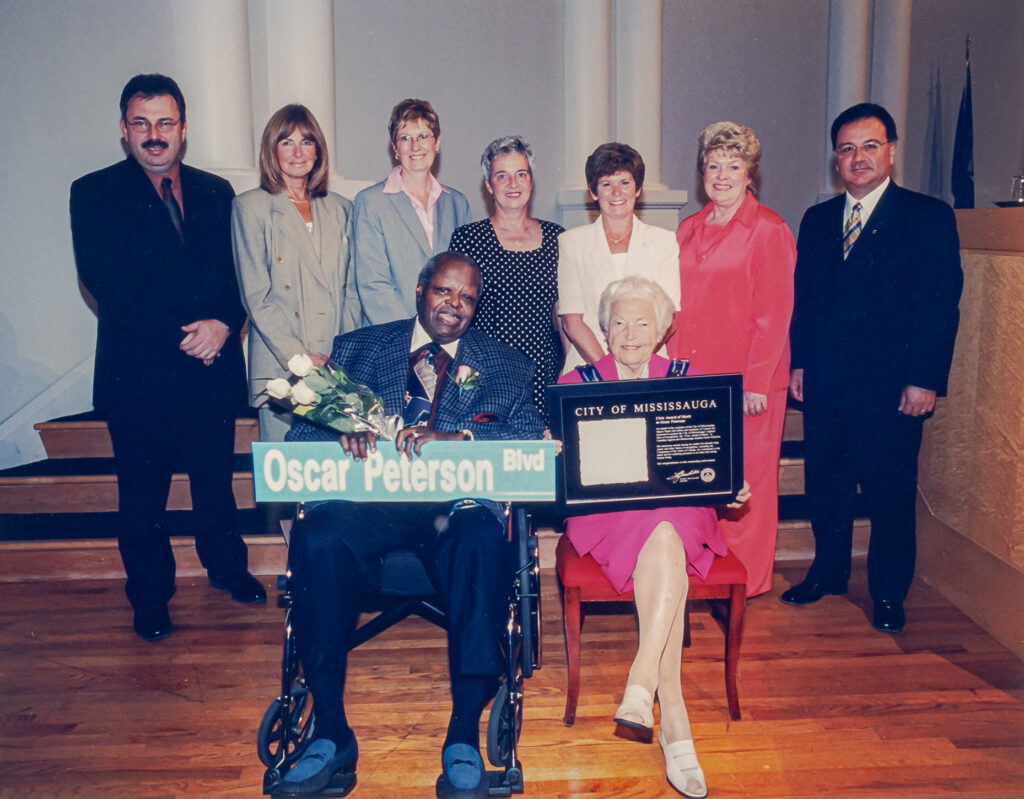Sixty years ago Oscar Peterson was on a train when an arrangement began to play in his mind.
The Montreal-born Peterson was an established international jazz star, a virtuoso on the piano.
He toured everywhere, from the Maritimes to British Columbia, often travelling by train. As he watched the country go by, an idea began to form.
The Canadiana Suite.
Eight movements, cinematic in their scope, as we the listeners, travel with him on a cross-country musical journey. Beginning with the Ballad to the East, Laurentide Waltz Place St. Henri, Hogtown Blues, Blues of the Prairies, Wheatland, March Past and concluding in the Land of the Misty Giants.
The Canadiana Suite is considered one of Peterson’s greatest compositions, visualizing through his trademark fast arpeggios and runs, Canada’s many landscapes, and bringing together Peterson’s great love for both jazz and Canada.
Perhaps there was a bit of his father Daniel in those movements, who worked as a railway porter, saving money to purchase a family piano.

Oscar Peterson lived in Erindale and was active in Mississauga life, including serving as patron of Heritage Mississauga. (Photo courtesy of Mississauga’s Legend’s Row)
Born and raised in the Little Burgundy neighbourhood of Montreal, Peterson came of age as jazz was beginning to take root in Canada and Little Burgundy at the heart of it.
However, Montreal in the 1930s was racially divided. Black workers and immigrants lived on the south side; the popular jazz clubs were on the north side and off-limits.
So the musicians of Little Burgundy created their own scene, such as Rockhead’s Paradise, where Peterson and fellow jazz pianist Oliver Jones got the crowd jumping.
Under the tutelage of his older sister Daisy, Oscar’s prodigious talent at the piano became apparent early on, taking him to Carnegie Hall while still in his 20s.
Peterson was renowned for his extraordinary technique, characterized by blazing speed, precision, and a profound musicality. His ability to blend complex chords with intricate melodies in a seamless, fluid style set new standards for jazz piano.
His style was a rich amalgamation of influences, including classical music, swing, and bebop, which he melded into a distinctive voice that was both sophisticated and accessible. This innovation helped shape the sound of jazz piano.
Peterson’s international tours and performances at major venues around the world played a significant role in popularizing jazz globally, bringing the genre to new audiences and elevating its status as a significant art form.
Despite his international fame, Peterson, like his peers, faced deep racism. In the 1950s, Black people were still a very tiny minority and Peterson, despite his prodigious talent, felt shut-out of Montreal and Toronto’s music and cultural establishment, including the CBC.
Peterson used his public fame and the strength of character instilled in him by his family, to battle for equal rights in Canada and his 1962 composition, Hymn to Freedom became a civil rights anthem.
In 1972 Oscar Peterson was inducted as a member of the Order of Canada.
It was around that time, in the early 1970s that Peterson moved to Mississauga, after a landlord in Toronto’s posh Forest Hills neighbourhood refused to rent to him because he was black.
In Erindale, he found a more open, welcoming and new community, where he got to know his neighbours and was able to retrofit his two-storey home with a soundproof studio for his Bosendorfer grand piano and a multi-track recording suite.
Over the course of his career, Peterson won over 100 awards, including eight Grammys and the UNESCO International Music Prize.
He played all over the world and collaborated with Ella Fitzgerald, Charlie Parker, Buddy Rich and his own trio. But while his fame was international, Peterson’s heart was rooted in Canada, and in Mississauga.
Among his many accomplishments, Peterson was a patron of Heritage Mississauga.
His work has inspired countless musicians across genres. His recordings are studied by jazz students for their technical brilliance and emotional depth, and his legacy is cited by many contemporary artists as a major influence on their own development.

Mayor Hazel McCallion and members of council honoured Oscar Peterson in 2003 with Mississauga’s Civic Award of Merit, a tribute concert at the Living Arts Centre and the naming of Oscar Peterson Blvd., which intersects with Eglinton Avenue, just east of Winston Churchill Blvd. (Photo courtesy of Museums of Mississauga)
With a career spanning over 60 years, Peterson’s discography is vast and varied, covering solo albums, trios, and collaborations with some of the biggest names in jazz, including Ella Fitzgerald, Louis Armstrong, Dizzy Gillespie and Herbie Hancock, who said this soon after Peterson died.
“Oscar Peterson redefined swing for modern jazz pianists. You’ll find Oscar Peterson’s influence in the generations that came after him. No one will ever be able to take his place.”
In 2013 he was one of the inaugural inductees of Mississauga’s Legends Row, the city’s highest honour.
A number of activities are planned to celebrate the centenary of Peterson’s birth in 2025, including a special concert at Massey Hall.
You can hear more stories about the people and events that helped shape Mississauga via our podcast, We Built This City: Tales of Mississauga, available on your favourite podcast platform or from our website.
